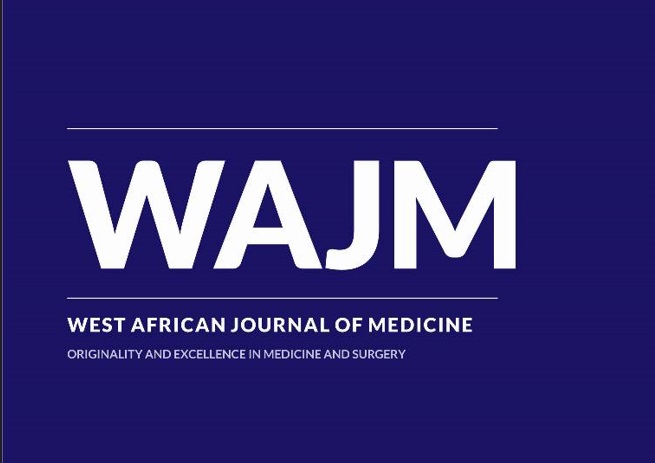ORIGINAL: Bacteriological Agents and Resistance Profiles in Neonatal Sepsis from a Poorly Regulated Antimicrobial Access Setting: Time for Action
West Afr J Med. 2024 September; 41 (9): 944-949 PMID: 39862427
Keywords:
Antibiotics, Bacteria, Multi-drug Resistance, Neonatal sepsisAbstract
Background: Neonatal sepsis (NNS) is a known cause of morbidity and mortality especially in developing countries. The global resistance scourge may worsen the management outcomes of NNS. This study aims to determine the current profile of bacteriological agents of NNS, their resistance status and associated mortality in our setting.
Methods: Neonates numbering 480 presenting with clinical features of sepsis and /or risk for sepsis were consecutively recruited into the study and had their blood specimens collected at admission. Blood samples were logged into BacT/ALERT® and then inoculated onto blood, chocolate and MacConkey agar upon beeping. Inoculated agar plates were incubated aerobically at 35-37oC for 24-48 hours except the Chocolate agar incubated under an enriched CO2 atmosphere. Isolates were identified using standard microbiological techniques. Antibiotic susceptibility was performed by the modified Kirby-Bauer disc diffusion method and interpreted using CLSI recommendations. Multi-drug-resistant (MDR) bacterial strains were identified by resistance to at least one antimicrobial agent from three or more categories. Discharge and Deaths were the reported outcomes of treatment.
Results: The 480 neonates investigated M: F=1:0.8 and a mean age of 5.64 ± 7.28 days. The overall prevalence of microbiologically confirmed NNS was 24.6%. There is no significant difference (p=0.1395) in the NNS prevalence among males (22.0%) compared to females (28.3%). The highest prevalence of NNS (39.8%) was recorded at the gestational age of 32-36 weeks. NNS prevalence significantly (p=0.009) changed with increasing gestational age just as the prevalence of maternal chorioamnionitis history significantly (p=0.0006) increased with increasing gestational age. Gram-positive bacteria (56.2%) were the predominant isolates and S. aureus (47.9%) was the most frequent. Salmonella Typhi occurrence was 1.4%. A majority (54.8%) of the pathogens were MDR. The overall mortality rate in the study was 6.5% with significant (p=0.00001) higher deaths among microbiologically confirmed NNS (18.5%) compared to nonmicrobiologically confirmed NNS (2.5%).
Conclusion: The prevalence of 'microbiologically confirmed' NNS in this study is high and most identified pathogens were MDR. Salmonella Typhi was a rare agent of NNS seen in this study. Mortality recorded is high and the time for mitigating the emergence and spread of MDR such as regulated antimicrobial sale and use is now.


